Description
“The Global Economy is a welcome addition to the globalization debate. For too long most analysis of this important issue has focused just on economic matters, with little attention to moral and cultural concerns. This book presents a set of essays that are a serious and balanced effort to deal with a broad range of issues. The economic analysis is generally well-done and the effects of the global economy on family, culture and ethics are treated fairly and thoroughly. This is an important book and deserves the attention of anyone wrestling with the implications of globalization for individual, family, and societal well-being.”
—Dr. Peter J. Hill, Professor of Economics, Wheaton College
“This book is interesting, enlightening, and provocative. It contains a remarkably diverse set of readings that will put more thought and less a motion into the discussion of globalization. It would make an excellent text for social science courses focusing on how interactions across national and cultural boundaries are influencing our lives and our future.”
—James Gwartney, Professor of Economics, Florida State University
“Technology is rapidly changing much more than the global marketplace. The Global Economy: Changing Politics, Family and Society puts individual faces to those changes, and boldly asks the questions, where do we go from here, and how are we to get there?”
—Edwin J. Feulner, Ph.D., President, The Heritage Foundation
“Globalization is an enormous force for good, but it does not come without cost. By surveying the impact of globalization on everything from economics to culture, The Global Economy will help readers understand the enormous changes occurring in their world.”
—Dr. Doug Bandow, Senior Fellow at the Cato Institute and nationally syndicated columnist
The global economy is enormous—about $32 trillion per annum—and it is pervasive. Because of mass communication and advanced technology, the global economy affects the output of goods and services of every nation. Gone forever are the days when mighty oceans or mountains allowed any country to isolate itself from the rest of the world. Time zones have been replaced by the 24-hour-a-day stock market. The fate of the South Korean won and the Thai baht is a matter of major concern to the stock markets of Washington, London and Sao Paulo. Today, no nation is an island but a part of a world-wide economic archipelago. Today, because economics is global, politics is becoming global.
Furthermore, the globalization of the economy impacts the socio-cultural shape of every nation and people on the face of the earth. From soft drinks to jeans, automobiles to computers, television news to movies, the world is being homogenized, usually in the American image. The film “Titanic” played to standing-room-only crowds in New York City, London and Tokyo. Country singer Garth Brooks is the best-selling singer in history. CNN is the global news network. Cultural blockbusters and superstars are eclipsing smaller, indigenous cultural offerings and entertainers. Is the planet truly becoming Hollywood?
Yet, in a world that is changing faster and more dramatically than at any time in history, the family remains the fundamental social unit of every country. How is it faring, economically, socially, spiritually? Beyond debate, the family is being subjected to stresses and strains it has heretofore never known. It is buffeted by China’s one-child policy, America’s 1.2 million abortions a year, Japan and Western Europe’s rapidly aging population, the spreading AIDS epidemic in Africa and Asia, a widening gap between haves and havenots within nations and between nations, and the sharpening conflict between fundamentalists and secularists in many countries.
And still most agree that there can be no viable society without viable families. This volume examines the focus of globalization on politics and society and what can be done to preserve and strengthen the family in a world increasingly indifferent to the age-old virtues of faith, hope, and charity.
Table of Contents
INTRODUCTION
Globalization: The Good, the Bad, and the Unknown
Lee Edwards
Part I
CHAPTER 1 The Blessings and Challenges of Globalization
Daniel T. Griswold
CHAPTER 2 Zambia: Overcoming Barriers
Yenkatesh Seshamani
CHAPTER 3 The World at 2000
Gregory R. Beabout
Part II
CHAPTER 4 Why Hollywood Isn’t American Anymore
Scott R. Olson
CHAPTER 5 The Multilaterals
Gary M. Quinlivan
CHAPTER 6. Venezuela and Neoliberalism
Hernan Lopez-Garay
Part III
CHAPTER 7 Profits and Prophets
Elizabeth Fox-Genovese
CHAPTER 8 Can the Marketplace Serve the Family?
Laura L. Garcia
CHAPTER 9 Bangladesh: New Threats and Old Insecurities
M. Nazrul lslam
Part IV
CHAPTER 10 Free Markets and Free Societies
Mark A. Groombridge
CHAPTER 11 China: Coping with Modernization
Mujin Zhang Long He
Part V
CHAPTER 12 TV Reality Vs. Real Reality
Ted J. Smith III
CHAPTER 13 Brave New Cyberworld
Donald P. Cushman and Sarah S. King
CHAPTER 14 Ukraine: Thinking Globally, Acting Regionally
Alexander Honcharenko
Part VI
CHAPTER 15 The Environment and the Market
Kevin Schmeising
CHAPTER 16 Jordan: Assessing and Adjusting
Subhi Qasem
Part VII
CHAPTER 17 The Future of the Family
Allan C. Carlson
CHAPTER 18 Argentina: The Family as the Moving Force
Alcira Badle
ABOUT THE CONTRIBUTORS
INDEX
LEE EDWARDS is an adjunct professor of politics at The Catholic University of America and a senior fellow at the Heritage Foundation. He has published ten books, including a political history of modern American conservatism and biographies of Ronald Reagan and Barry Goldwater. His articles have appeared in leading U.S. journals and newspapers.
Dr. Edwards is a graduate of Duke University, The Sorbonne, and Catholic University. Formerly a fellow at the Kennedy School of Government at Harvard University, he was the founding director of the Institute of Political Journalism at Georgetown University and is a senior editor of The World & I magazine. He resides in Alexandria, Virginia, with his wife Anne, who assists him in his research and writing.
About the Contributors
ALCIRA BATLLE is professor of economics at the University of Buenos Aires, Buenos Aires, Argentina
GREGORY R. BEABOUT is professor of philosophy at St. Louis University, St. Louis, Missouri, USA
ALLAN C. CARLSON is president of the Howard Center for Family, Religion and Society, Rockford, Illinois, USA
DONALD P. CUSHMAN is professor emeritus of commuications at State University of New York at Albany, New York, USA
LEE EDWARDS is adjunct professor of politics at The Catholic University of America, Washington, D.C., USA
ELIZABETH FOX-GENOVESE is Elenore Raoul Professor of History at Emory University, Atlanta, Georgia, USA
LAURA L. GARCIA is adjunct assistant professor of philosophy at Boston College, Boston, Massachusetts, USA
DANIEL T. GRISWOLD is associate director of the Center for Trade Policy Studies at the Cato Institute, Washington, D.C., USA
MARK A. GROOMBRIDGE is a research fellow in trade policy at the Cato Institute, Washington, D.C., USA
MUJIN ZHANG LONG HE is senior professor of economics at Beijing Qinghua University, Beijing, China
ALEXANDER HONCHARENKO is chairman of the National and International Security Department, National Institute for Strategic Studies, Kyiv, Ukraine
M. NAZRUL ISLAM is professor of political science at the University of Dhaka, Dhaka, Bangladesh
SARAH S. KING is professor emeritus of communications at Central Connecticut State University, New Britain, Connecticut, USA
HERNAN LOPEZ-GARAY is a professor at the Centro de Investigaciones en Sistemologia Interpretativa, Universidad de Los Andes, Meridia, Venezuela
SCOTT R. OLSON is dean of the College of Communications, Information and Media at Ball State University, Muncie, Indiana, USA
SUBHI QASEM is professor emeritus at the University of Jordan, Aman, Jordan
GARY M. QUINLIVIAN is executive director of the Center for Economics and Policy Education, Saint Vincent College, Latrobe, Pennsylvania, USA
KEVIN E. SCHMIESING is head of the Center for Economic Personalism, Acton Institute for the Study of Religion and Liberty, Grand Rapids, Michigan, USA
VENKATESH SESHAMANI is professor of economics at the University of Zambia, Lusaka, Zambia
TED J. SMITH is associate professor of mass communications at Virginia Commonwealth University, Richmond, Virginia, USA.

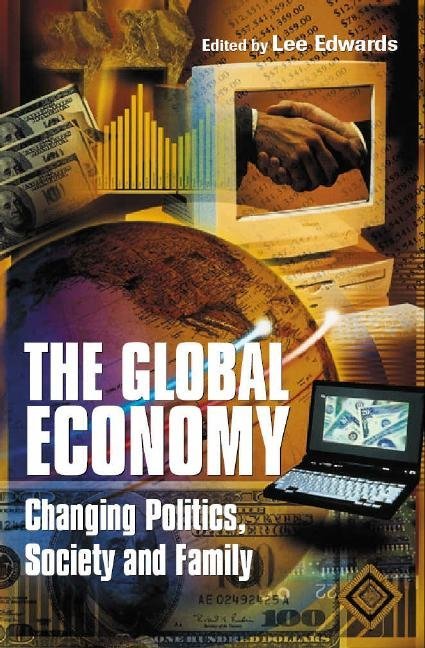
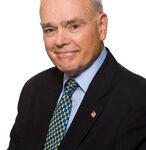

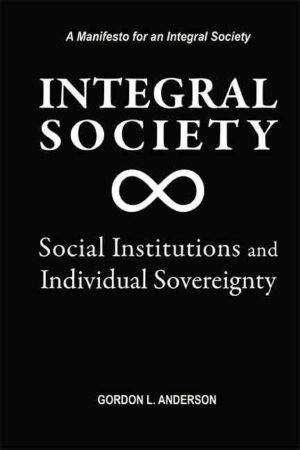
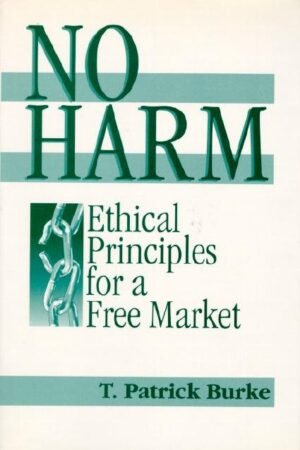
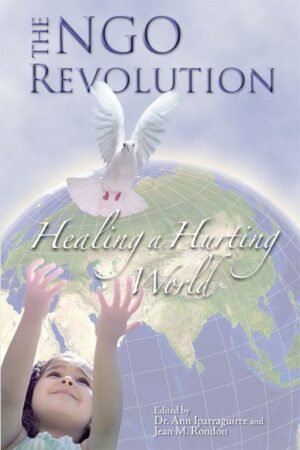
Reviews
There are no reviews yet.